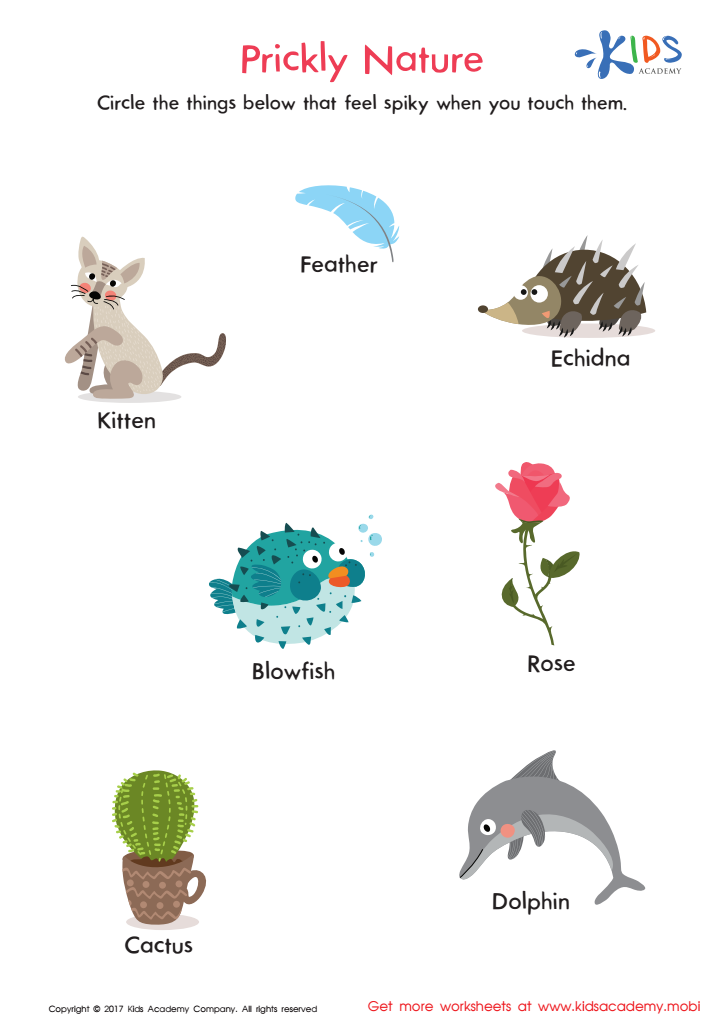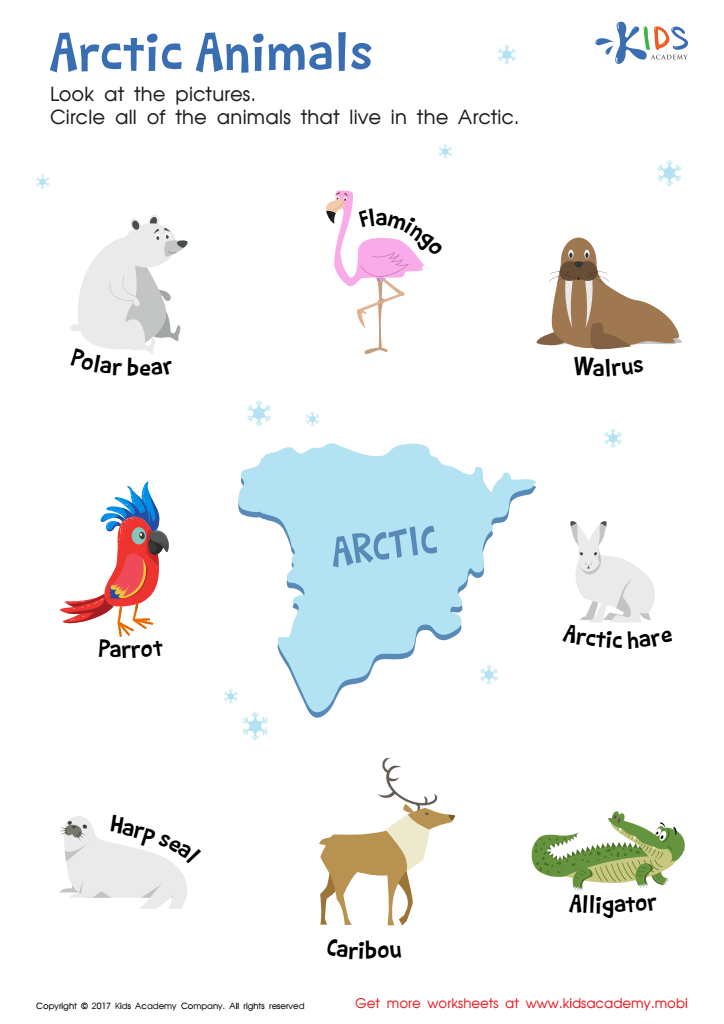Animal identification Normal Science Worksheets for 6-Year-Olds
4 filtered results
-
From - To
Discover a fun and educational way to introduce your 6-year-old to the world of animals with our Animal Identification Science Worksheets! Designed to spark curiosity and build foundational knowledge in young learners, these worksheets offer engaging activities that teach kids to recognize different animals and their habitats. Each worksheet is crafted to enhance learning skills such as observation, classification, and critical thinking. Perfect for classroom or at-home education, our printable resources make learning about animals an exciting adventure that young minds will love. Unlock the doors to knowledge and soothe the natural curiosity of your budding scientist today!


Carnivores Worksheet


Prickly Nature Worksheet


Arctic Animals Worksheet


Animals and Plants: Assessment 1 Worksheet
Parents and teachers should recognize the importance of teaching animal identification in early science education for several essential reasons. Firstly, learning about animals helps 6-year-olds develop observational skills. Children train their senses to understand shapes, colors, sizes, and patterns, which lays a foundation for more complex scientific and critical thinking skills in the future.
Moreover, animal identification sparks curiosity and fosters a love for biology and the natural world. This enthusiasm for learning can be instrumental in motivating students to explore more advanced scientific topics as they grow older. Understanding the diversity of animal life also teaches children about habitats, ecosystems, and the intricate balance of nature, which is essential for cultivating environmental awareness and responsibility at a young age.
Additionally, studying animals can aid in language development. Children learn new vocabulary—such as the names of animals, their habitats, and characteristics—which enhances their communication and comprehension skills. Interacting with concepts about animals through stories, games, and hands-on activities also promotes social and cognitive development, fostering teamwork, cooperation, and problem-solving.
Thus, including animal identification in the curriculum not only supports essential academic skills but also nurtures a broader understanding and care for the world, laying the groundwork for mindful and informed individuals.

 Assign to My Students
Assign to My Students




.jpg)















